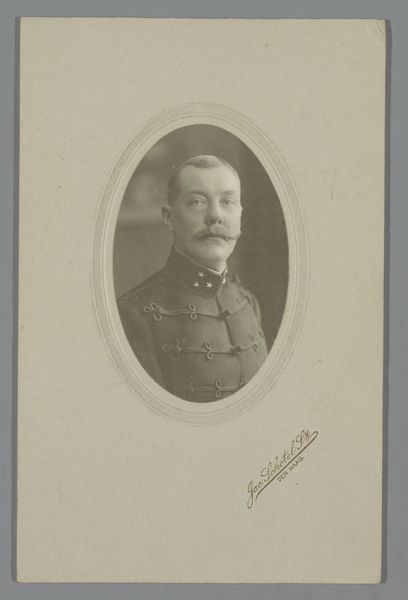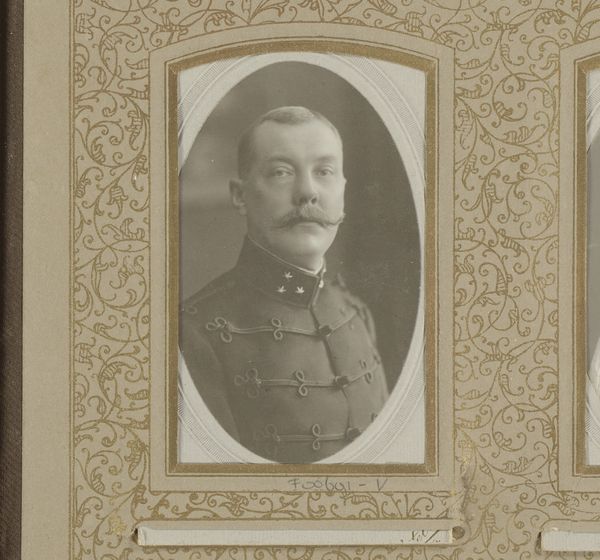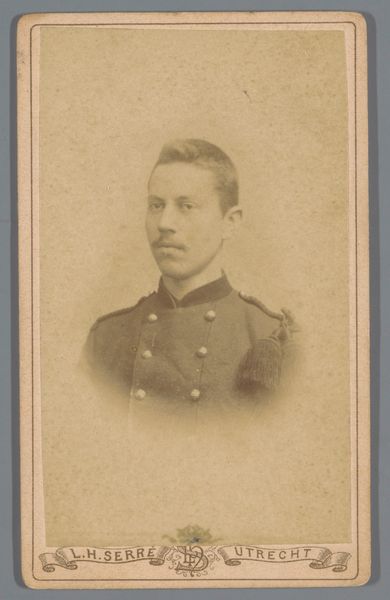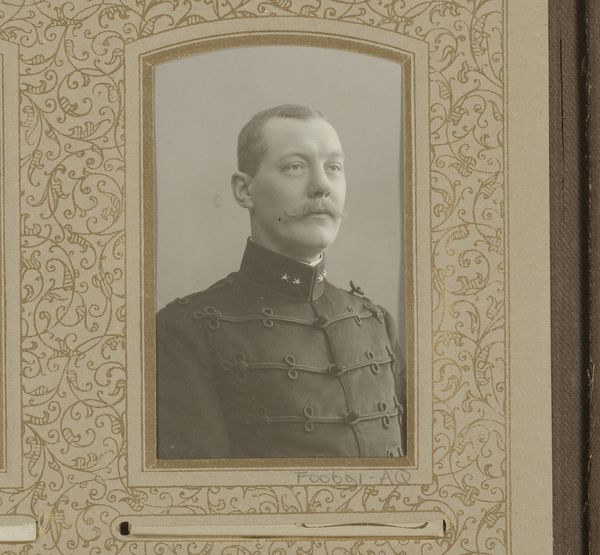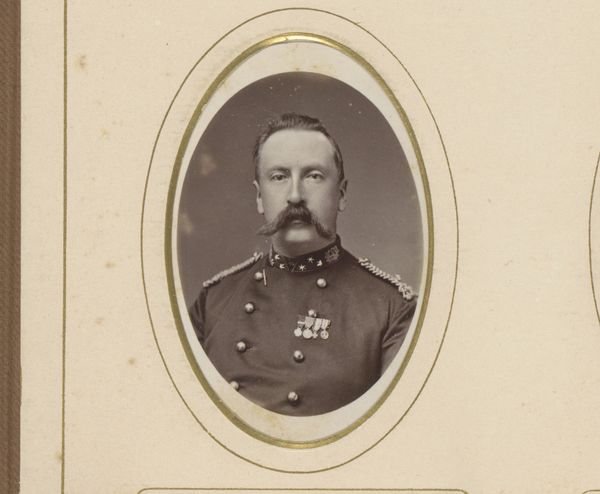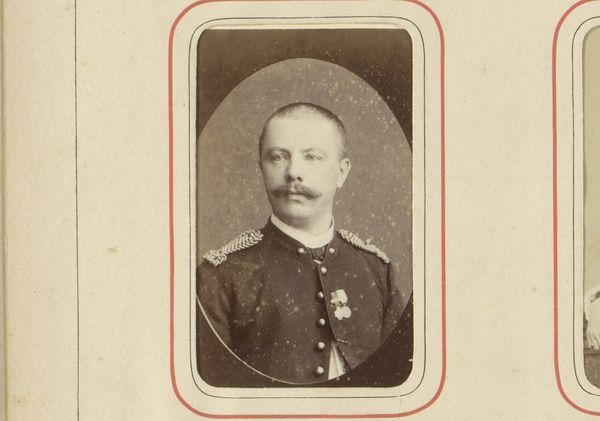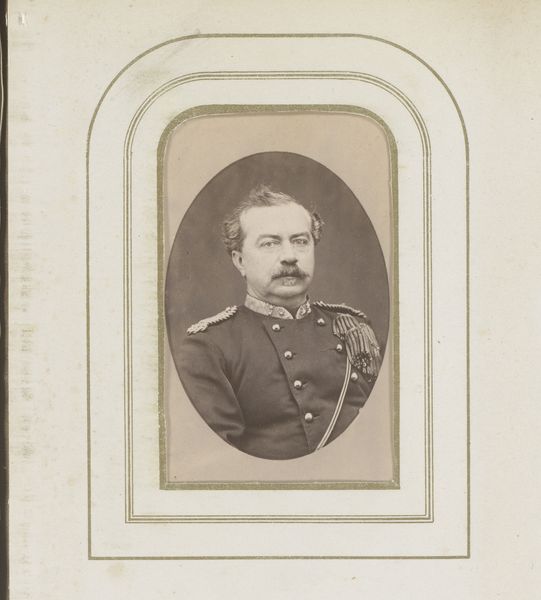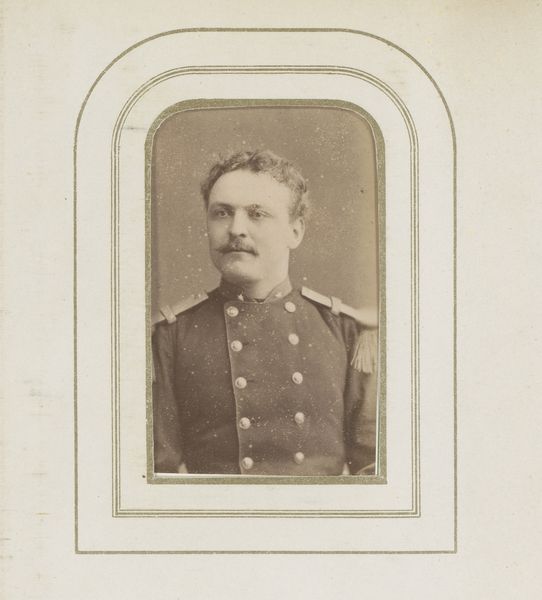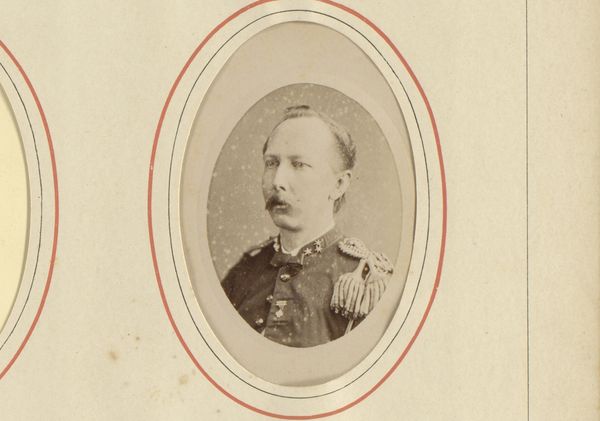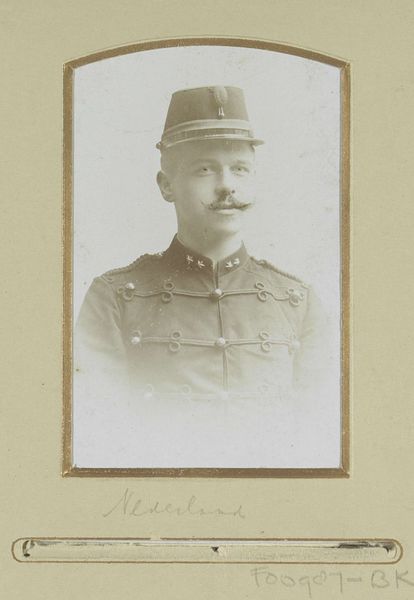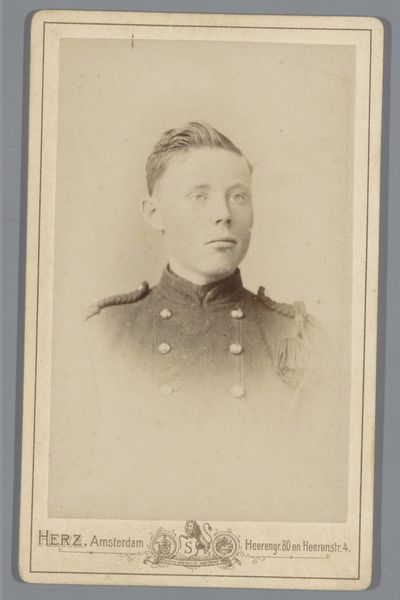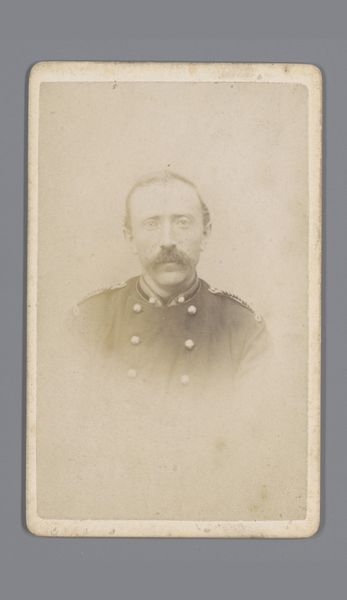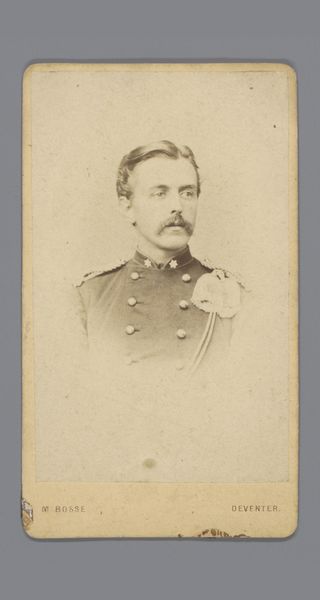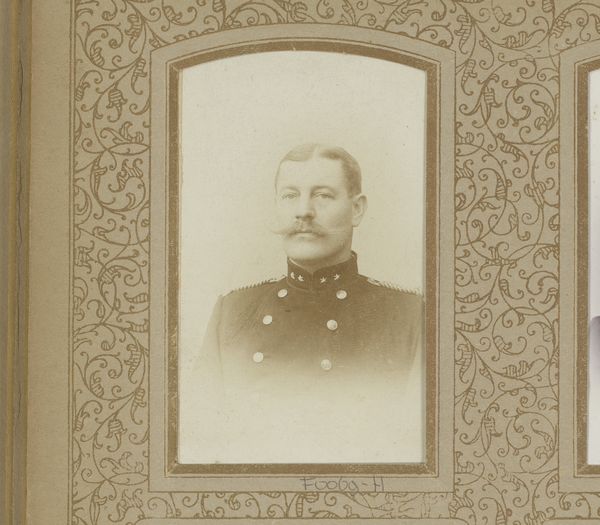
photography, gelatin-silver-print
#
portrait
#
photography
#
gelatin-silver-print
#
realism
Dimensions: height 167 mm, width 108 mm
Copyright: Rijks Museum: Open Domain
Editor: We're looking at "Portret van een militair," or "Portrait of a Military Man," a gelatin silver print, circa 1900-1920, by Jac. Schotel Szn. It's striking how the oval frame isolates the figure, and the tones are quite muted, giving it a sense of formality. What do you see in this piece? Curator: Well, first I see the meticulous composition. Observe how the photographer has expertly controlled light and shadow to sculpt the subject's face, accentuating his features. Note, too, the contrast between the detailed military uniform and the plain background; what structural elements does that juxtaposition offer the viewer? Editor: I suppose the emphasis is definitely on the figure, drawing my eye immediately to his face and the sharp details of his uniform. The artist forces the viewer to contend with a formal, distant portrait of a stern military man. Curator: Precisely. It compels the viewer to assess the sitter's visual rhetoric, to analyse the forms used to present this individual and his military rank. Further, examine the symmetrical arrangement of buttons and embellishments across the subject’s chest and collar line. Are you drawn to its symbolic intent or, as I am, towards an appreciation of its formal integrity? Editor: I can definitely see the argument for its formal aspects being most prominent. So much work has gone into capturing those minute details in silver gelatin. The uniform feels as essential to the portrait as the man himself. Curator: Indeed. In stripping away contextual cues beyond the immediate sartorial symbols and facial features, the photograph becomes less an insight into an individual, and more an articulation of the relationship between the photographic form and its representative subject. It really is a thought provoking construction, and a powerful composition. Editor: I hadn’t considered it that way. I was initially seeing it through a more historical lens, but I better appreciate the way that focusing on form encourages an investigation into its structure, its geometry. Curator: Exactly. Close observation always leads to a greater comprehension, if not greater questions.
Comments
No comments
Be the first to comment and join the conversation on the ultimate creative platform.
